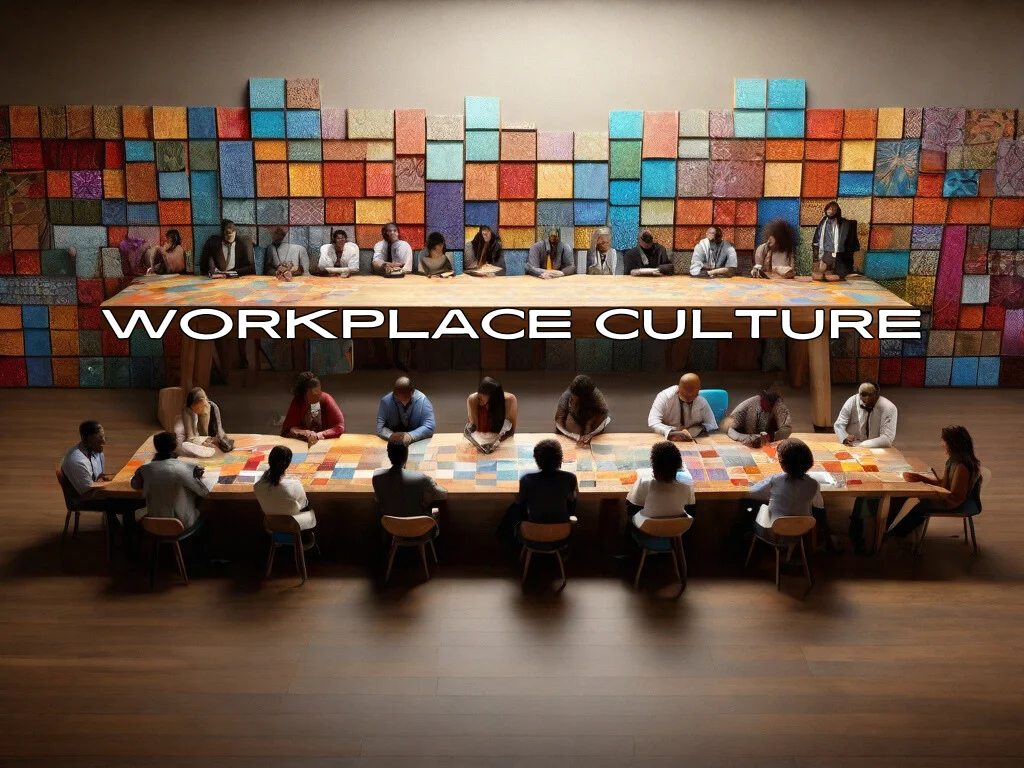
Introduction
We hear a lot about work cultures, toxic work cultures, etc. But many people don’t really know what it means. In this post, we’ll define what work culture is.
Work Culture Definition
The coronavirus pandemic instantly upended the workplace, leaving many companies scrambling to keep afloat. Unfortunately, one of the side effects of the pandemic is what has been termed the great resignation, as tens of millions of Americans quit their jobs. This brought the focus onto workplaces and the environment in which people carry out their duties, as many people named it as a deciding factor in their departure. However, there are many people still asking: what exactly is a work culture?
In a nutshell, a company’s work culture is the environment it creates for its staff to work in. It includes shared beliefs and traditions, leadership, company values, staff interactions, and behaviors of staff members. It’s how people behave, how they interact with each other, the personalities and leadership styles of executives, what’s important to the company, the processes for getting things done, written and unwritten rules, and the overall vibe of the company.
Every company has a unique environment that forms over time, created through the policies and practices of the company and through the interactions of the people who work there. The company culture influences the people who work there, but the people who work there also influence the culture.

Your work culture is the environment you create for your staff. It includes your leadership, values, behaviors, shared beliefs, company traditions, staff interactions, policies and procedures and more.
Why a Toxic Work Culture Leads to Resignations
A healthy workplace culture recognizes its uniqueness, and hires individuals whose values and beliefs are aligned with their culture. They promote leaders who exemplify the culture in a positive way, knowing that company leaders and executives set the tone in the workplace. Healthy work cultures have open communication, recognition for a job well done, and accountability for behaviors and actions.
Toxic work cultures, on the other hand, are typically unhappy places to work. They are filled with distrust, poor communication, gossip and backstabbing, dysfunctional leadership, and unfair practices, with no accountability for bad behavior for some individuals. According to a 2022 FlexJobs survey, a toxic work culture was the number one reason people resigned. in addition, of the top 7 things people considered when deciding to quit a job, 6 of them revolve around the employee’s experiences with the company.
One of the main problems with toxic work environments is that in many instances, leadership is aware of the issues in their workplace, but simply doesn’t address them. And, of course in many situations, the leadership is the reason for the poor environment at the company. However, just like it takes time to develop a healthy work environment, it takes time to develop a bad one.
Wherever You Are Is Just a Start
But there’s good news. Even if your company doesn’t have a great work culture, it’s something that can be improved and changed. With new hybrid workplaces and more dependence on technology, companies have a great opportunity to take a hard, honest look at their workplace, and take the steps needed to create an environment that people will be happy to go to and work hard to maintain.
It’s important for companies to pay attention to their work environment. Yes, there’s always someone else you can hire to do the job. Many companies have taken this approach for years. These are usually companies that have high turnover, high expenses and low profit margins, safety and compliance issues, and are unhappy places to work. But with the right focus and the right tools, any company can become a place where people enjoy working.
When people enjoy working somewhere, they work HARD for that company. Remember, a strong workplace culture goes beyond the environment where people work. It’s the combination of environmental factors, along with company values, employee interactions, and overall sense of well-being that fosters a thriving work atmosphere.
Conclusion
Paradise has over 25 years’ experience in helping companies create positive work environments for their employees. We can help with policies and procedures, staff training and development, corrective action, and workplace communication. To schedule a confidential consultation, contact Paradise today.